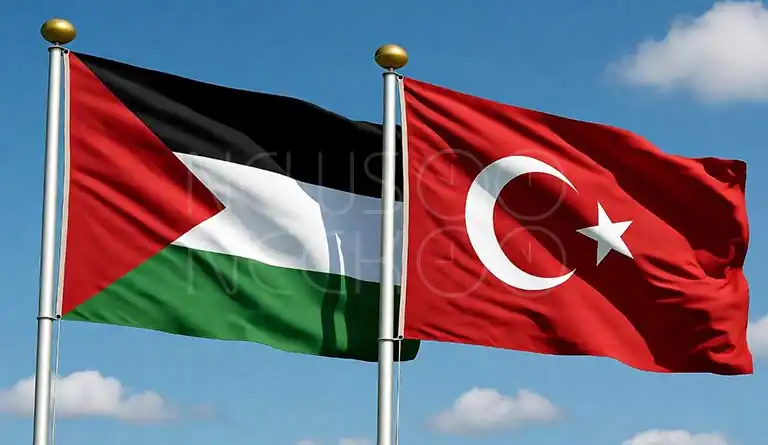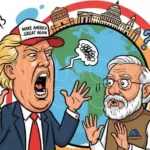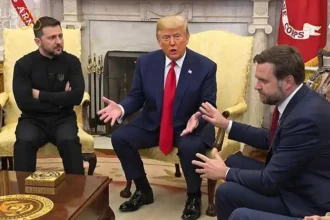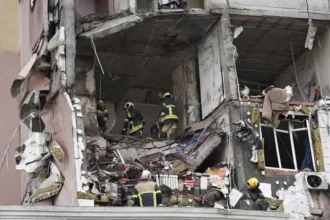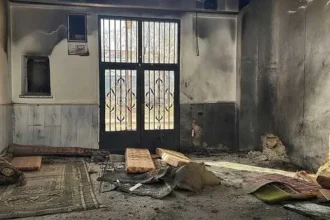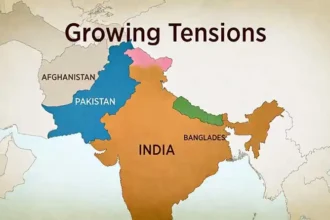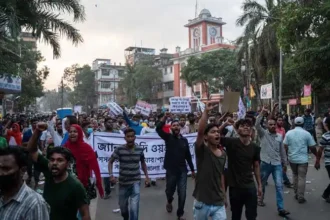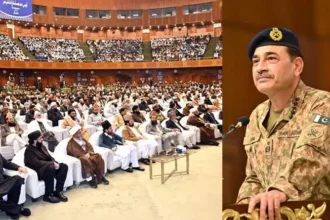Behind Closed Doors in Istanbul: Muslim Nations Race to Save Fragile Gaza Peace Before It Collapses
In a luxurious conference room overlooking the Bosphorus Strait in Istanbul, some of the world’s most powerful diplomats gathered on Monday with a single urgent mission: save a fragile peace agreement that appears ready to shatter at any moment. The meeting brings together foreign ministers from across the Muslim world to address what many fear could be the final chance to prevent Gaza from plunging back into full-scale war.
The ministers arriving in Turkey’s largest city represent nations that collectively speak for over one billion people: Qatar, Saudi Arabia, the United Arab Emirates, Jordan, Pakistan, and Indonesia. Each carries the weight of their government’s expectations and the desperate hopes of millions watching from Gaza, where families huddle in damaged homes, praying that the current quiet will last.
A Ceasefire Built on Shaky Ground
To understand why this meeting matters so much, we need to look at the agreement these diplomats are trying to protect. On October tenth, after nearly two years of devastating conflict, a ceasefire finally took effect in Gaza. United States President Donald Trump helped negotiate the deal, bringing together parties that had refused to talk for months.
The agreement stopped the immediate fighting, which was crucial. Bombs stopped falling. Missiles stopped launching. People could walk outside without fearing death from the sky. In that sense, the ceasefire worked.
But here is the problem: the agreement left almost every difficult question unanswered. What happens to Hamas, the Palestinian militant organization that controls Gaza? When will Israeli forces leave Gaza completely? Who will govern Gaza after the fighting ends? How will anyone ensure both sides follow the rules?
These questions were too controversial to solve during negotiations, so everyone agreed to deal with them later. That “later” has now arrived, and the answers remain as elusive as ever.
Accusations Fly as Violence Continues
Despite the official ceasefire, complete peace has not come to Gaza. Since October tenth, periodic outbreaks of violence have tested whether the agreement can survive. Both Hamas and Israel accuse each other of breaking the ceasefire terms.
Turkish President Tayyip Erdogan, speaking in Istanbul just before the ministerial meeting began, painted a clear picture of who he believes is responsible for the violations. He stated that Hamas has been following the ceasefire rules, but Israel has “a very poor record” in honoring the agreement.
Erdogan provided specific accusations. According to the Turkish president, Israeli forces have killed more than two hundred people since the ceasefire began. He also claimed that Israel has not stopped its military operations in the West Bank, a separate Palestinian territory that was not part of the ceasefire agreement but remains under Israeli occupation.
These are serious charges. If accurate, they suggest that while guns may have quieted in Gaza, violence continues elsewhere and the spirit of peace remains fragile.
You Might Like it: Gaza Ceasefire Brings Hope and Heartbreak
The Question of Who Watches the Watchers
One of the most important topics on Monday’s agenda is something called an “international stabilization force.” This rather bureaucratic phrase describes an idea that could determine whether peace survives: sending international troops or monitors to Gaza to ensure both sides follow the ceasefire rules.
Think of it like having a referee at a sports match. When two teams play against each other and tensions run high, having a neutral official ensures fair play. Without that referee, disputes escalate and the game falls apart. The same principle applies here, except the stakes are human lives rather than points on a scoreboard.
Turkish Foreign Minister Hakan Fidan explained on Friday that the ministers would discuss forming this monitoring force. The questions are complex: Which countries should provide troops? What powers would these monitors have? Can they use force to stop violations? Who gives them orders? How long would they stay?
Even more complicated is getting everyone to agree. Any international force operating in such a sensitive area would likely need approval from the United Nations Security Council. Getting that approval means convincing countries with very different interests including the United States, Russia, and China to support the same plan.
Also Read: A fragile peace finds its moment in the Middle East War
Turkey’s Central Role and Israel’s Objection
Turkey has positioned itself as a major player in Gaza peace efforts. The country helped negotiate the current ceasefire and has loudly offered to participate in monitoring its implementation. President Erdogan has been one of Israel’s harshest critics throughout the conflict, calling Israel’s military operations in Gaza “genocide”—a term Israel strongly rejects.
This brings us to a significant obstacle. Israel has publicly stated it opposes Turkish involvement in any monitoring force. Given the hostile rhetoric between Turkish and Israeli leaders, this opposition is not surprising. Israel does not want a country that accuses it of genocide to serve as a supposedly neutral referee.
This disagreement illustrates a broader challenge: finding monitors that both sides will accept as fair. Hamas might welcome Turkish participation, but Israel’s objection could block it. Finding countries or organizations that both parties trust seems nearly impossible.
What Hangs in the Balance
Beyond the technical discussions about monitoring forces and ceasefire violations, larger questions loom over Monday’s meeting. President Erdogan made clear that Turkey and its partners are watching Israeli actions beyond just Gaza.
Erdogan specifically mentioned the West Bank, where Israeli settlements continue expanding despite international opposition. He warned that Turkey would not accept Israeli annexation of the West Bank or any attempts to change Jerusalem’s status. He particularly emphasized protecting the Al-Aqsa mosque, one of Islam’s holiest sites, which sits in Jerusalem’s Old City.
These comments reveal that the ministers gathering in Istanbul see Gaza not as an isolated issue but as part of larger regional tensions. How Israel and Palestinian groups interact in Gaza will influence dynamics throughout the region.
The Humanitarian Emergency Continues
While diplomats debate monitoring forces and ceasefire violations, ordinary people in Gaza face immediate crises. The humanitarian situation remains desperate, which is why it appears prominently on Monday’s meeting agenda.
After nearly two years of intense fighting, Gaza’s infrastructure lies in ruins. Hospitals struggle to function with limited electricity and supplies. Clean water is scarce. Thousands of homes are destroyed or damaged beyond repair. Children have missed months or years of schooling. The psychological trauma of living through constant warfare affects nearly everyone.
The ceasefire may have stopped most bombing, but it has not solved these humanitarian emergencies. People need food, medicine, shelter, and hope. International aid organizations need access and security guarantees to help effectively. These practical concerns require solutions just as urgently as the political and military questions.
Why This Meeting Matters
Monday’s gathering in Istanbul represents a critical moment. The Muslim-majority countries sending their foreign ministers have significant diplomatic and economic influence. Their collective position on Gaza and the ceasefire could shape international responses.
If these nations can agree on concrete steps such as increasing humanitarian aid, supporting a specific model for monitoring forces, or pressuring both sides to honor ceasefire terms they might help stabilize the fragile peace.
Conversely, if the meeting produces only vague statements and no actionable plans, the opportunity to strengthen the ceasefire could slip away. With violations already occurring and trust between parties virtually nonexistent, time is running out to build a more durable peace framework.
Looking Forward with Uncertainty
The ministers meeting in Istanbul face an enormous challenge. They must somehow bridge gaps between parties that deeply mistrust each other, resolve questions that negotiators deliberately avoided weeks ago, and create monitoring mechanisms that can function despite political opposition.
Success is far from guaranteed. The complexity of Middle Eastern politics, the depth of grievances on all sides, and the difficulty of enforcing international agreements in conflict zones all work against a positive outcome.
Yet the alternative to success is grim. If the ceasefire collapses and fighting resumes, the humanitarian catastrophe in Gaza would worsen dramatically. The fragile stability that has allowed some aid to reach desperate people would disappear. Regional tensions could escalate further, potentially drawing more countries into conflict.
For the people of Gaza, who have endured unimaginable suffering over the past two years, the discussions happening in Istanbul’s conference rooms represent something precious: hope that perhaps, this time, peace might actually last.
Author: Yasir Khan
Date: 03 Nov, 2025
For More Updates, Visit Newsneck


